The Southern Poverty Law Center gathered hundreds of stories of everyday bigotry from people across the United States. They told their stories through e-mail, personal interviews and at roundtable discussions in four cities. People spoke about encounters in stores and restaurants, on streets and in schools. No matter the location or relationship, the stories echo each other.
Want to read this in PDF form? Click here.
In this article
Responding to Everyday Bigotry
Your brother routinely makes anti-Semitic comments. Your neighbor uses the N-word in casual conversation. Your co-worker ribs you about your Italian surname, asking if you're in the mafia. Your classmate insults something by saying, "That's so gay."
And you stand there, in silence, thinking, "What can I say in response to that?" Or you laugh along, uncomfortably. Or, frustrated or angry, you walk away without saying anything, thinking later, "I should have said something."
People spoke about encounters in stores and restaurants, on streets and in schools. They spoke about family, friends, classmates and co-workers. They told us what they did or didn't say — and what they wished they did or didn't say.
And no matter the location or relationship, the stories echo each other.
When a Native American man at one roundtable discussion spoke of feeling ostracized at work, a Jewish woman nodded in support. When an African American woman told of daily indignities of racism at school, a white man leaned forward and asked what he could do to help. When an elderly lesbian spoke of finally feeling brave enough to wear a rainbow pin in public, those around the table applauded her courage.
What Can I Do Among Family?

“I feel like an outsider. I feel confused. Is this my family?”
Among participants in our round table discussions, family moments represented some of the greatest difficulties: How to speak up to the people closest to you, those you love the most, whether in response to a single instance or an ongoing pattern.
Power and history come into play in such moments, affecting how comfortable or unsettling it feels to speak up.
Who holds power in the family? Who sets the tone for family interaction? What roles do elders and children play, and how might their words carry more weight or impact?
And other questions take shape: Was bigotry a part of daily life in the home you grew up in? Do you continue to accept that as the norm? Do you forgive bigotry in some family members more than others? Do the "rules" about what gets said — and what doesn't — change from one home to another? Who shares your views opposing such bigotry? Working together, will you find greater success in speaking out?
Appealing to shared values can be a way to begin discussions at home or with relatives. Try saying, "Our family is too important to let bigotry tear it apart." Or, "Our family always has stood for fairness, and the comments you're making are terribly unfair."
Or, simply, "Is this what our family stands for?"
What Can I Do About Sibling Slurs?
'Is This My Family?'

A woman is vacationing with her mother and two brothers. One morning, her brother says he wants to give his car "a Jewish car wash," which he describes as "taking soap out when it's raining to wash your car, so you don't waste money on water." He says he learned the phrase from their stepfather.
She asks, "Why is that funny?" He laughs and says, "Don't you get it? It's the whole Jewish-cheap thing." She responds, "Well, I don't think it's funny." He says, "What do you care? You're not Jewish."
That evening, over dinner, her other brother makes similar remarks.
"It pains me and embarrasses me that this is a pervasive culture in my own family, that they consider this part of their 'humor,'" she says. "I feel like an outsider. I feel confused. Where have I been? Is this my family?"
Speaking Up...
Sibling relationships involve long-established habits, shared experiences and expectations. In crafting a response to bias from a brother or sister, consider your history together. Was bigoted language and "humor" allowed or even encouraged in your childhood home? Or, is this behavior something new? Does you sibling see him- or herself as the sibling leader? Or does another sibling hold that role? The following suggestions might help frame your response:
Honor the past. If such behavior wasn't accepted in your growing-up years, remind your sibling of your shared past: "I remember when we were kids, Mom went out of her way to make sure we embraced differences. I'm not sure when or why that changed for you, but it hasn't changed for me."
Change the present. If bigoted behavior was accepted in your childhood home, explain to your siblings that you've changed: "I know when we were growing up that we all used to tell 'jokes' about Jews. As an adult, though, I advocate respect for others."
Appeal to family ties. "I value our relationship so much, and we've always been so close. Those anti-Semitic remarks are putting a lot of distance between us, and I don't want to feel distanced from you."
Reach out. Feedback about bias is sometimes hard to hear. Who is your sibling most likely to listen to? A spouse? A parent? A child? Seek out other relatives who can help deliver the message.
What Can I Do About Joking In-Laws?
'Not ... In My Own Home'
A woman's father-in-law routinely tells racist "jokes" at family gatherings. "It made me very uncomfortable," she writes, "though at first I didn't say anything to him about it." After having children, however, she felt compelled to speak up.
Arriving for her next visit, she said to her father-in-law, "I know I can't control what you do in your own house. Your racist 'jokes' are offensive to me, and I will not allow my children to be subjected to them. If you choose to continue with them, I will take the children and leave. And I'm informing you that racist 'jokes' or comments will not be allowed in my own home."
Describe your family's values. Your spouse's/partner's family may well embrace bigoted "humor" as part of familial culture. Explain why that isn't the case in your home; explain that principles like tolerance and respect for others guide your immediate family's interactions and attitudes.
Set limits. Although you may not be able to change your in-laws' attitudes, you can set limits on their behavior in your own home: "I will not allow bigoted 'jokes' to be told in my home."
Follow through. In this case, during her next visit, the woman and her children left when the father-in-law began to tell such a "joke." She did that two more times, at later family gatherings, before her father-in-law finally refrained.
What Can I Do About Impressionable Children?
‘How Would He Feel?’
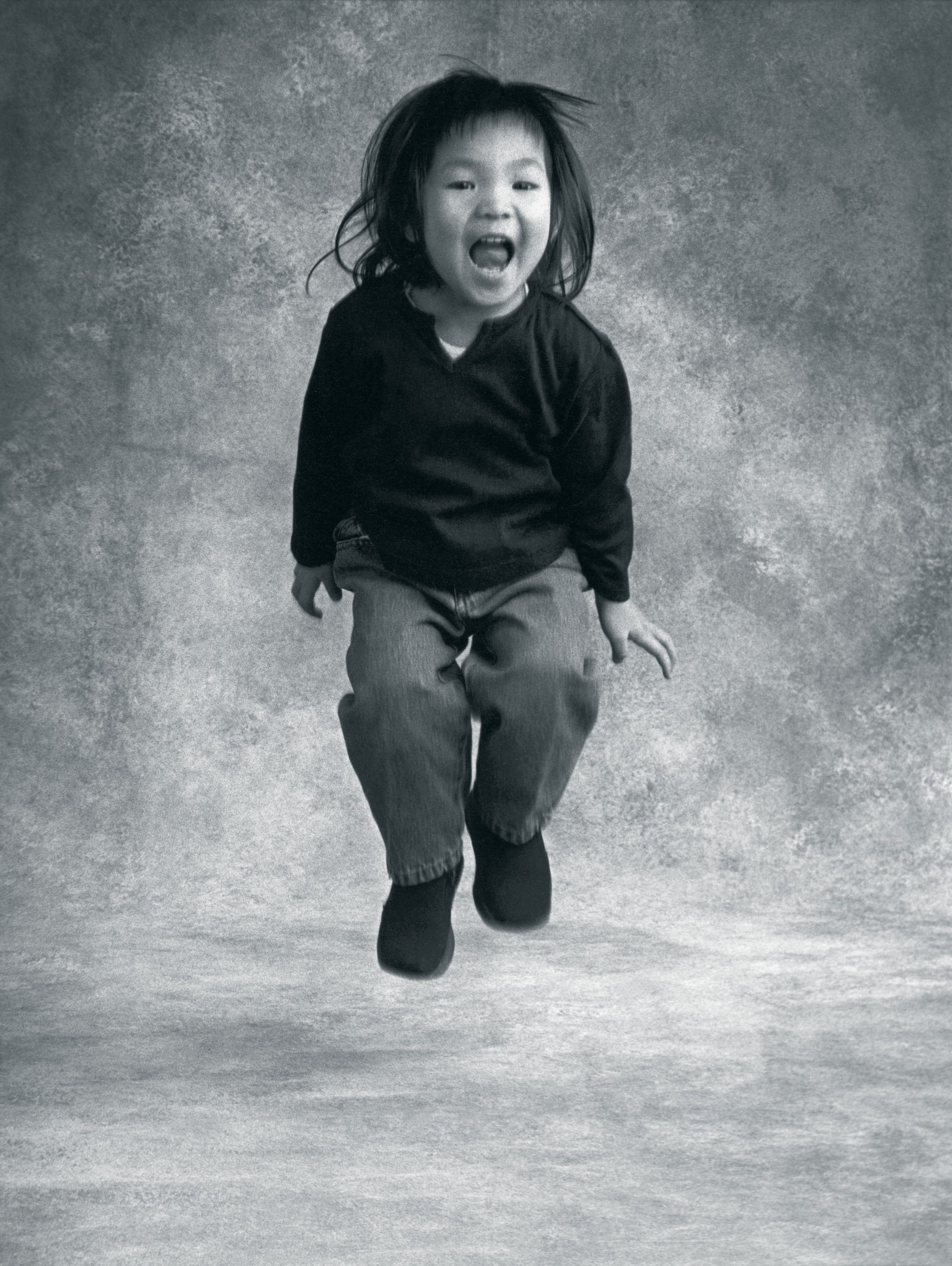
A woman's young son tells a racist "joke" at dinner that he had heard on the playground earlier that day. "I immediately discussed with him how inappropriate it was. I asked him to put himself in the place of the person in the 'joke.' How would he feel? I discussed with him the feeling of empathy."
A New Jersey woman writes: "My young daughter wrapped a towel around her head and said she wanted to be a terrorist for Halloween — 'like that man down the street.'" The man is a Sikh who wears a turban for religious reasons. The woman asks, "What do I tell my daughter?"
Focus on empathy. When a child says or does something that reflects biases or embraces stereotypes, point it out: "What makes that 'joke' funny?" Guide the conversation toward empathy and respect: "How do you think our neighbor would feel if he heard you call him a terrorist?"
Expand horizons. Look critically at how your child defines "normal." Help to expand the definition: "Our neighbor is a Sikh, not a terrorist. Let's learn about his religion." Create opportunities for children to spend time with and learn about people who are different from themselves.
Prepare for the predictable. Every year, Halloween becomes a magnet for stereotypes. Children and adults dress as "psychos" or "bums," perpetuating biased representations of people with mental illness or people who are homeless. Others wear masks steeped in stereotypical features or misrepresentations. Seek costumes that don't embrace stereotypes. Have fun on the holiday without turning it into an exercise in bigotry and bias.
Be a role model. If parents treat people unfairly based on differences, children likely will repeat what they see. Be conscious of your own dealings with others.
What Can I Do About Parental Attitudes?
'What To Say'
A woman writes: "My mother uses racial and ethnic terminology — the Mexican checkout clerk, the black saleslady — in casual stories in which race and ethnicity are not factors. Of course, if the person is white, she never bothers to mention it."
A man continually refers to the largest nuts in cans of mixed nuts as "nigger toes." His grown children speak up whenever they hear him use the term, but he persists.
A man writes, "My father says he has nothing against homosexuals, but they shouldn't allow them to lead in a church. I didn't know what to say."
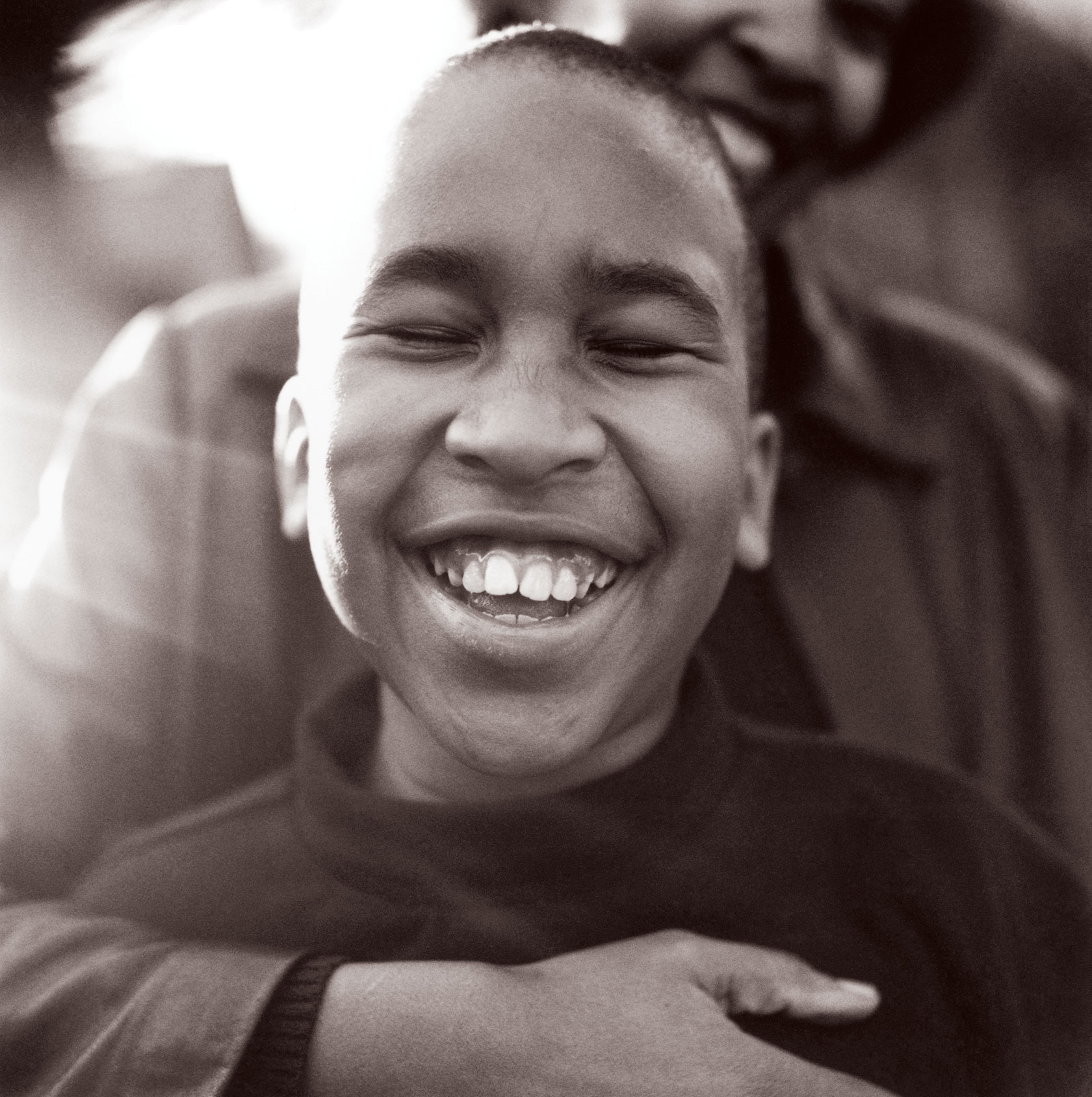
Speak up without 'talking back.' Repeat information, removing unnecessary racial or ethnic descriptions: "What did the checkout clerk do next, Mom?" Or, "Yes, I like these mixed nuts, too." Subtly model bias-free language.
Appeal to parental values. Call upon the principles that guided your childhood home. "Dad, when I was growing up, you taught me to treat others the way I wanted to be treated. And I just don't think that term is very nice."
Discuss actively. Ask clarifying questions: "Why do you feel that way?" "Are you saying everyone should feel this way?" Articulate your view: "You know, Dad, I see this differently. Here's why." Strive for common ground: "What can we agree on here?"
Anticipate and rehearse. When you know bias is likely to arise, practice possible responses in front of a mirror beforehand. Figure out what works best for you, what feels the most comfortable. Become confident in your responses, and use them.
What Can I Do About Stubborn Relatives?

'It Was Like A Game To Him'
A young Arizona woman says her father and uncle know how much she opposes racist or homophobic "jokes." "I've told them that all the time, and they just keep telling 'jokes' to make me mad, to push my buttons and get a reaction. They know I hate it. It used to make me so angry I'd cry and leave the house. Now I just try not to react."
A Maryland man shares a similar story: "My cousin used to come visit me whenever he was doing business in town. One time he was over and used the N-word, and I said, 'I don't use that word,' but he still used it a few more times. I finally said, 'Don't use that word. If you're going to use that word, I'm going to ask you to find somewhere else to stay.' It was like a game to him, to use the word to see how I'd react."
Describe what is happening. Define the offense, and describe the pattern of behavior. "Every time I come over, you tell 'jokes' I find offensive. While some people might laugh along with you, I don't. I've asked you not to tell them, but you keep doing it anyway."
Describe how you are feeling. "I love you so much, and I know you love me, too. I wonder why you choose to keep hurting me with your comments and 'jokes.'"
Appeal to family ties. "Your 'jokes' are putting unnecessary distance between us; I worry they'll end up doing irreparable harm. I want to make sure those 'jokes' don't damage our relationship."
State values, set limits. "You know that respect and tolerance are important values in my life, and, while I understand that you have a right to say what you want, I'm asking you to show a little more respect for me by not telling these 'jokes' when I'm around."
Ask for a response. "I don't want this rift to get worse, and I want us to have a good relationship. What should we do?"
Broaden the discussion. Consider including sympathetic family members — and not-so-sympathetic family members — in the discussion so everyone can work to help the family find common ground.
Put it in writing. If spoken words and actions don't have an effect, consider writing a note, letter or email. Often, people "hear" things more clearly that way.
What can I do about my own bias?
'I Thought I Was Cool'
An African American woman is raising her teenage niece. The niece joined the basketball team, came home and said, "Auntie, there are 12 girls on the team, and six are lesbians."
The woman recalls the moment:
"I thought I wasn't homophobic, but, boy, I had to sleep on that one. I was thinking, you know, they're going to recruit her. And here I thought I was cool. It used to be my fear — and I hate to say this, but it's true — it used to be my fear that she would come home with a white man. Now I'm asking myself, 'Would I be more upset if she came home with a white man or a black woman?'"
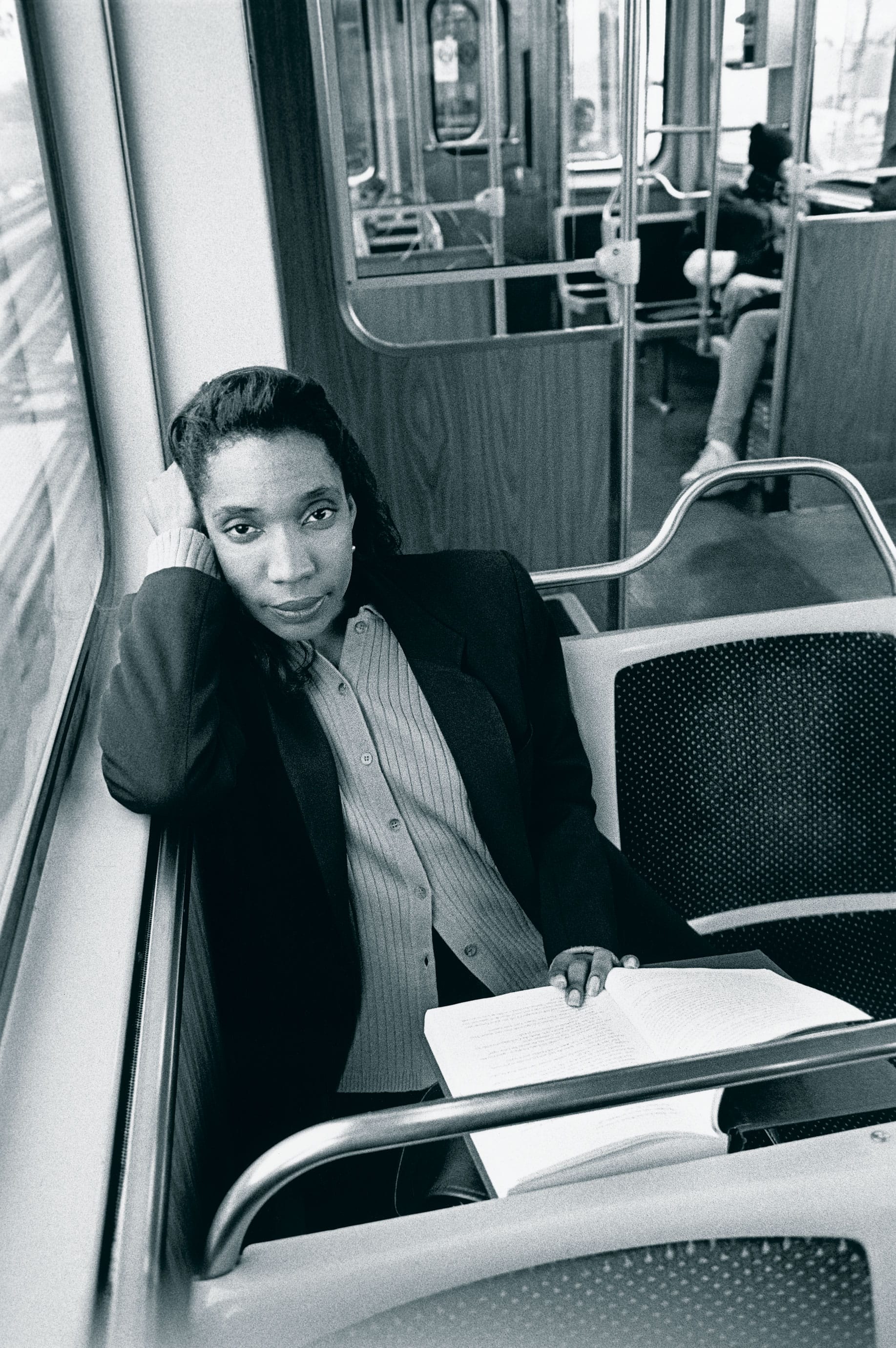
Seek feedback and advice. Ask family members to help you work through your biases. Families that work through these difficult emotions in healthy ways often are stronger for it.
State your goals — out loud. Say, "You know, I've really got some work to do here, to understand why I feel and think the way I do." Such admissions can be powerful in modeling behavior for others.
Commit to learn more. Education, exposure and awareness are key factors in moving from prejudice to understanding and acceptance. Create such opportunities for yourself.
Follow through. Select a date — a couple of weeks or months away — and mark it on a calendar. When the date arrives, reflect on what you've learned, how your behavior has changed and what's left to do. Reach out again for feedback on your behavior.
What Can I Do Among Friends And Neighbors?

“I felt like an idiot and didn’t even have the good sense to apologize, though I was at least smart enough to stop telling ‘jokes.’’’
Many stories people shared with us dealt with difficult moments involving friends and neighbors. Factors that affect how they speak up include how well or little they know each other, how often they interact and how damaging they consider the offense to be.
Some people said they're more forgiving of bigotry among friends than they are among family or the general public, allowing remarks to pass without response. "Lisa's just that way," they say. "She'll never change." That becomes an excuse for not speaking up. Do you allow such attitudes to keep you from speaking up?
Others indicated that what gets said within in-groups — people of the same race, ethnicity, gender, sexual orientation or religion — often is more bigoted or biased than what they say or hear in the broader community. Do you allow bigotry to go unfettered in such groups? What message does that send? And how does it relate to your values?
What Can I Do About Sour Social Events?
'That Can't Be Good Manners'
From a California man:

"I grew up fairly poor, but I attended a college that drew students from some very rich families. A wealthy classmate invited me out to dinner one night when her family was visiting, and we went to the fanciest restaurant I'd ever been to.
"During the salad course, the waiter brought a cloth-covered platter with what I found out later were chilled forks. I reached to take the platter out of his hands so I could pass it around the table to the others. Apparently, judging from the laughter from my classmate's sister and parents, this was a major faux pas. I was supposed to just take my fork and let the waiter move to the next person with the tray.
"I felt ashamed for the rest of the meal and excused myself from joining them for some sightseeing afterward. Heading back to my dorm room, I just kept thinking about them laughing at me. That can't be good manners."
Others spoke of similar social-event moments, including being in groups where phrases such as "redneck" and "white trash" are used in "joking" but uncomfortable ways.
Address the speaker. A simple comment — "I'm sorry; what's so funny?" — can jar someone from their rudeness. Or be more exact: "I'm sorry. I'm not sure I know what you mean by 'white trash.' Could you explain that term?" When faced with crafting an answer, the speaker may begin to understand the inappropriateness of the remark.
Appeal to the host. Party hosts have brought people together and often are the closest to each of the guests. Ask the host to rein in offensive "jokes" and culturally biased statements. In the above case, the man may have discussed the moment later, with his classmate, who then could have raised the issue with her family.
Look for body language. Did you see anyone else flinch when the comment was made? If so, approach the person and assess whether they know the speaker well. If so, consider asking that person to approach the speaker privately.
What Can I Do About Casual Comments?
'What Do Chinese People Think?'
A white man plans to marry a South American woman; his friends make incorrect assumptions about her race, religion and family background. "The question we never stop getting is, 'Do Carrie's parents mind?' When we question the question, we are told that 'Indian families' like their daughters to marry their 'own kind.' How can we respond?"

A Chicago woman who is adopted, still grieving the death of her mother, is told, "Oh, so that wasn't your real mother who died?" The woman writes, "I was so hurt by this I didn't know what to say."
A Chinese American woman often finds herself asked by friends, "What do Chinese people think about that?"
Approach friends as allies. When a friend makes a hurtful comment or poses an offensive question, it's easy to shut down, put up walls or disengage. Remember that you're friends with this person for a reason; something special brought you together. Drawing on that bond, explain how the comment offended you.
Respond with silence. When a friend poses a question that feels hurtful, let protracted silence do the work for you. Say nothing and wait for the speaker to respond with an open-ended question: "What's up?" Then describe the comment from your point of view.
Talk about differences. When we have friendships across group lines, it's natural to focus on what we have in common, rather than our differences. Yet our differences matter. Strive to open up the conversation: "We've been friends for years, and I value our friendship very much. One thing we've never really talked about is my experiences with racism. I'd like to do that now."
What Can I Do About Offended Guests?
'What Are You?'
A friend stays overnight with a married couple. All three had been part of a beer-drinking crowd in college but when offered a beer that evening, the guest politely declines.
In the morning, the husband offers the guest a cup of coffee. Again, the guest declines. Attempting humor, the husband asks, "What are you, Mormon or something?"
The guest explains that, yes, he has married since college, to a Mormon woman, and has converted.
The wife describes it this way: "Ever the nice guy, [the guest] handled it with grace and wit, letting [my husband] off gently."
Be proactive. Before houseguests arrive, ask if they have any special dietary restrictions or other needs. Also, share any household traditions or practices you have that may affect them.
Pay attention. When we miss or ignore social cues and clues, we can stumble into awkward moments. Pay attention to subtleties of communication, a hesitancy from a guest before beginning a meal might indicate a need for a moment of silent prayer, for example.
Focus on behavior, not beliefs. If you feel the need to ask questions, center it on behavior rather than beliefs. "John, you used to drink in college. Have you stopped?" This may open, rather than close, a conversation.
Accept information at face value. If someone declines one thing, offer another without judgment or inference. "Would you like a soft drink instead?" Or, "We also have milk or juice; would that work?" Be gracious. Aim to please, not judge.
Take responsibility.If you do stumble, don't let someone else's graciousness take you off the hook. Make amends as quickly and sincerely as possible: "What an insensitive thing for me to say. I'm sorry."
What Can I Do About Real Estate Racism?
'We Don't Share Your Views'
A New York couple meet their new neighbor shortly after he moves in. The new neighbor opens the conversation with, "You're probably relieved that no one black moved in."
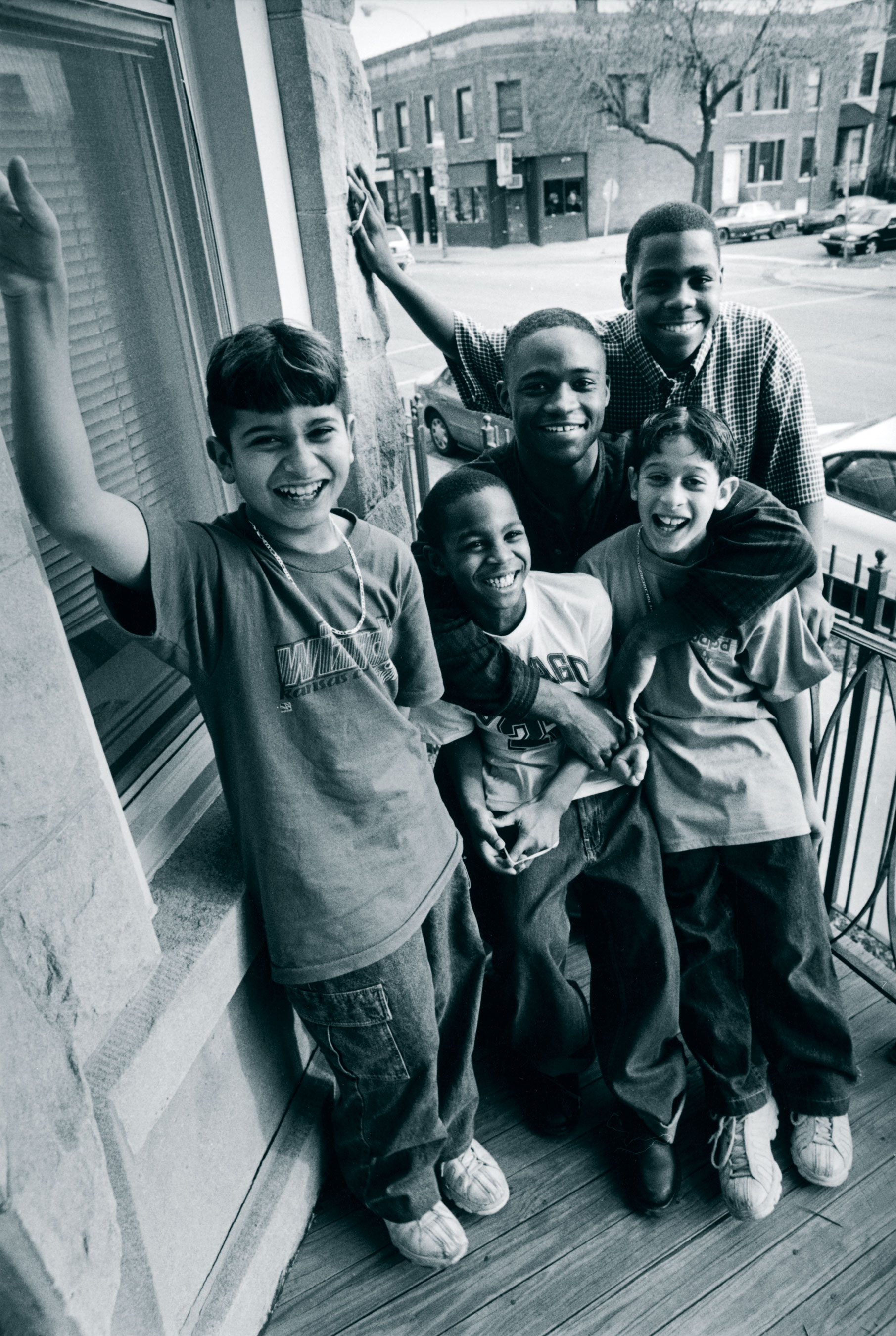
An Oregon man's neighbor informs him he has finally sold his house - describing, in a disapproving voice, the buyer as "a Chinese or Japanese woman married to a white man."
A South Carolina couple in an all-white neighborhood sell their home to an African American family. A neighbor confronts them angrily and asks why they sold the house to black people.
Assert neighborly values. "We know you're new to the neighborhood. Around here, we welcome all kinds of people. And we all look out for each other."
Appeal to basic humanity. When confronted with a bigoted, "Why did you sell your house to those people?" a simple reply is, "Because they're people. They want to buy our house, they can buy our house."
Appeal to allies or the neighborhood association. If you're the target of bigoted conduct and fear for your well-being or safety, let sympathetic neighbors know; ask them to keep an eye (and ear) out for you. Or contact the neighborhood association, which may have policies in place to assist you.
Model neighborly behavior. Extend a hearty welcome to new neighbors, and honor old neighbors. Help to create a neighborhood that values connectedness, rather than exclusion and bias.
What Can I Do About Unwanted Email
'Reply All' To Bigotry
Many of us receive unwanted "joke" e-mails forwarded by friends or colleagues.
Lesbians and gays, Muslims, Catholics, Jews, people with disabilities, Republicans, Democrats, people of all races and ethnicities, blondes and people who are overweight: The targets of such "joke" e-mails are innumerable.
"It's horrible," writes one man, who says he has changed his e-mail address at least once and not given the new address to those friends who frequently forward such e-mails.

Forward no more. Stop e-mailed bigotry at your computer. Don't forward it; instead, delete it. A simple deletion isn't the same as speaking up, of course — it does nothing to bring attention to the offense — but it's a solid first step in breaking the chain.
Reply to sender. Explain that the e-mail offended you and ask to be removed from any future e-mailings. Be sure to explain why — that you find bigoted language offensive, that so-called "jokes" are unfunny and that stereotypes are unfair, bigoted and harmful.
Reply to all. Do the same thing, but hit "reply all," sharing your thoughts with everyone on the e-mail list. Others then may follow your example. Imagine the powerful statement that would be made if all recipients responded in this way.
What Can I Do About My Own Bias?
'I Lost Perspective'
A 45-year-old man writes:
"I was young, but that's not really an excuse. I was hanging out with a mostly male beer-drinking crowd, and raunchy, sexist 'jokes' were one of the conversational norms. Not that it's right to tell those kind of 'jokes' anywhere, but I just got used to it in that crowd, and I guess I lost perspective of how inappropriate they were.
"So I find myself at a dinner party, not fancy, but fancier than the beer crowd I'd been used to. As an icebreaker, I tell one of those 'jokes,' a brutally sexist one that got big laughs from the boys earlier that week. And this huge silence follows. A nervous chuckle or two among the half-dozen dinner guests, but otherwise just a big, booming silence. I felt like an idiot and didn't even have the good sense to apologize, though I was at least smart enough to stop telling 'jokes.'
"A new job and other life changes took me away from the beer-drinking buddies, and I'd never tell those kinds of 'jokes' anymore — in any company. But it's almost 20 years later, and I still feel a sense of shame for the awful judgment and taste I showed."

Owning up to our own biased behavior among friends can be uncomfortable. Don’t let anxiety, embarrassment or guilt stop you from making amends — or from changing your behavior. Friends are among the people most likely to forgive missteps and help you move forward.
Apologize immediately. Save yourself the guilt by apologizing in the moment: "I don't know what I was thinking. I could make some excuses, but none would make up for telling such a sexist, tasteless 'joke.' I apologize and hope I haven't ruined this wonderful dinner."
Write a letter. Candor can be difficult to muster in such moments. If words don't come at the gathering, try handwritten notes to the host and other guests afterward: "I went home from the dinner party feeling ashamed and embarrassed, too embarrassed even to say anything to anyone. I'm sorry for the sexist, tasteless and totally inappropriate 'joke' I told. Please accept my humble, and belated, apologies."
Offer to make amends. "Is there is anything I can or should do to make this up to you? Our relationship is important to me."
Learn the lesson. Don't do it again, even if you're back with a crowd that finds such "jokes" humorous. Choose jokes that are funny without being sexist, racist or otherwise offensive.
What Can I Do At Work?

“One day (the supervisor) took me aside to deliver what he must have thought was a compliment. He told me, ‘You’re a good worker. You’re not like the other Mexicans.’ I just nodded and went back to work because I wanted to keep my job.”
The workplace is, for some, the only place they experience diversity. For those who live in segregated neighborhoods, attend segregated houses of worship or take part in segregated hobbies or activities, work becomes the only place they interact with people of varied and diverse backgrounds. It often is, for these people, a testing ground.
The workplace often offers built-in grievance procedures, tied to policies or laws, which can be used to respond to some forms of everyday bigotry. You need not file a lawsuit to have such a policy be effective; many roundtable participants spoke of invoking such policies when speaking up, saying the mere mention carries weight.
Power, too, comes into play at the workplace. The dynamic of an employee speaking to a supervisor is very different than a supervisor speaking to an employee. Likewise, an executive's tacit acceptance of bigoted remarks can create an atmosphere where bias thrives — just as one powerfully placed comment from that executive can curb everyday bigotry in significant ways. Who sets the tone at your office? And what leverage do you have with that person? If you lack leverage, who has it? And might that person be an ally?
What Can I Do About Casual Comments
'Have You Had Diction Lessons?'

An African American businesswoman in the South writes: "I was speaking with a white co-worker when, midway through the conversation, she smiled and said, 'You speak so clearly. Have you had diction lessons?' — like for an African American to speak clearly, we'd have to have diction lessons."
A manager writes: "One of my employees constantly makes 'jokes' about people being 'bipolar' or 'going postal' or being 'off their meds.' I happen to know that one of our other employees — within earshot of these comments — is on medication for depression. How can I stop the bad behavior without revealing proprietary information?"
One co-worker asks another if she wants to go out for lunch. "We're going to get Ping-Pong chicken," she says, faking a vaguely Asian accent.
An Italian American woman's co-worker makes daily comments about her heritage. "Are you in the mafia?" "Are you related to the Godfather?" There are only six colleagues in the office, and the Italian American woman doesn't know how — or if — to respond.
Interrupt early. Workplace culture largely is determined by what is or isn't allowed to occur. If people are lax in responding to bigotry, then bigotry prevails. Speak up early and often in order to build a more inclusive environment.
Use — or establish — policies. Call upon existing — too often forgotten or ignored — policies to address bigoted language or behavior. Work with your personnel director or human resources department to create new policies and procedures, as needed. Also ask your company to provide anti-bias training.
Go up the ladder. If behavior persists, take your complaints up the management ladder. Find allies in upper management, and call on them to help create and maintain an office environment free of bias and bigotry.
Band together. Like-minded colleagues also may form an alliance and then ask the colleague or supervisor to change his or her tone or behavior.
What Can I Do About Workplace Humor?
'Please Don't Tell It'
A man mentions to a colleague that he is originally from West Virginia. The colleague laughs and says she knows some "jokes" about people from West Virginia.
She begins to tell one, and it's clear that the "joke" will have an offensive punch line.
The man holds up his hand and says, "Don't tell it. Please don't tell it."
She laughs, perhaps thinking he's joking himself, and tells not one but three "jokes," each with an increasingly bigoted punch line.
The man, at a loss for words, simply sits down when she is done.

Don't laugh. Meet a bigoted "joke" with silence, and maybe a raised eyebrow. Use body language to communicate your distaste for bigoted "humor."
Interrupt the laughter. "Why does everyone think that's funny?" Tell your co-workers why the "joke" offends you, that it feels demeaning and prejudicial. And don't hesitate to interrupt a "joke" with as many additional "no" messages as needed.
Set a 'not in my workspace' rule. Prohibit bigotry in your cubicle, your office or whatever other boundaries define your workspace. Be firm, and get others to join in. Allies can be invaluable in helping to curb bigoted remarks and behavior at the workplace.
Provide alternate humor. Learn and share jokes that don't rely on bias, bigotry or stereotypes as the root of their humor.
What Can I Do About Sexist Remarks?
'Business As Usual'
A female manager routinely is referred to as the "office mom." No male manager is ever referred to as the office "dad," and male managers expect the female manager to handle office birthdays and other non-job-related tasks. "That kind of sexism happens all the time," she says.
A female employee reports, "One of my male coworkers always comments on the physical appearance of our female colleagues. 'She's such a pretty girl,' or 'She's a lovely woman.' I find these comments inappropriate and have commented to him about them, but his behavior doesn't change."
A male employee bakes cookies and brings them to the office. A female employee, arriving later, asks who brought them. She thanks the man, then asks, "Did your wife bake them?" Another man wrote of a co-worker telling him his knowledge of gardening makes him seem "like a woman."
Be direct. Respond to the speaker in a way that makes sexist assumptions clear. "I'm not the office mom; I'm the office manager." Or, "No, I'm the baker in our household, not my wife."
Identify the pattern. Tell your supervisor, "In our weekly manager meetings, I've noticed that people expect me to take notes. I'm wondering if we could rotate that responsibility, so it's evenly distributed between male and female managers."
Start a brown-bag discussion group. If sexism is a persistent problem in your workplace, start an informal dialogue group to discuss the issue during your lunch breaks. Provide support for one another, and create an action plan.
Use incidents to teach tolerance. Advocate for staff training about sexism in the office; provide trainers with real-life examples from your office.
What Can I Do About Meeting Missteps?
'Stereotyping is Stereotyping'

Two co-workers, one of whom is deaf, are asked to meet with an executive from another firm. They go to the other man's office, and a sign-language interpreter accompanies them. The executive chooses to face the interpreter, speaking to him, not looking at or acknowledging the employee who is deaf.
An African American woman, in a staff meeting about budget issues, hears a white co-worker suggest cost-cutting measures for landscaping: "Why don't we just get the Mexicans to do it?"
A woman writes, "A good-hearted liberal co-worker makes comments at staff meetings like, 'All Republicans are stupid,' or, 'All Republicans are this,' or 'All Republicans are that.' I'm a Democrat who agrees with her politics, but I think those comments are as offensive as someone saying 'All immigrants are lazy' or 'All Irish people are drunks.' Stereotyping is stereotyping. Short of saying, 'Some of my best friends are Republicans,' what can I do?"
Seize the moment. With the interpreter, the colleague said, "I hate to interrupt, but just as a matter of practice, you should look at the person you're talking to, not the interpreter." In the meeting, an observer might say, "What do you mean by that? What are you saying about Mexicans?"
Address the issue privately. Take the coworker aside and gently explain what you find offensive: "You know, you're giving Democrats a bad name when you make sweeping generalizations about Republicans."
Check in with the meeting leader. If you are uncomfortable dealing with the speaker directly, consider speaking with the person who called the meeting. Set expectations or ground rules prior to the next meeting.
What Can I Do About Boss Bias?

'You're Not Like The Other Mexicans'
From an Arizona man: "I'm a Mexican American, and I worked for a time, a long time ago, in construction. One day (the supervisor) took me aside to deliver what he must have thought was a compliment. He told me, 'You're a good worker. You're not like the other Mexicans.' I just nodded and went back to work because I wanted to keep my job. But I wish I would have said something to him, set him straight that stuff like that isn't a compliment."
A woman works at a company where a male co-worker comes in one day with a newly pierced ear. Their manager sees the earring and laughingly calls him a "faggot."
When bias comes from the boss, it’s easy to assume nothing can be done. The boss has all the power, right? Regardless of a company’s size, nothing gets done without the workers; your power rests in this simple fact. Try these response techniques:;
Focus on the company's people. "A lot of different kinds of people work for you, and for this company. We come to work every day and give you our best. What you just said, does it really honor me and the other people here?"
Tie tolerance to the bottom line. Remind your supervisor that when people feel valued and respected, a healthy and productive work environment emerges. "Is 'faggot' really a word we should be throwing around? We don't know who's gay and who's straight, who has gay relatives and who doesn't. I think that comment could really upset some people — and distract them from their work."
Go up the ladder. Consider your options, based on your supervisor's temperament and the office environment. If you're uncomfortable confronting the boss directly, consult your company's human resources department to find out what harassment policies are in place and whether they apply.
What Can I Do About My Own Bias?
'I Said Nothing'
A Southern white woman is an event coordinator working with an African American minister. They end up talking about a mutual acquaintance who is known to be persistent and driven.
"Without thinking," the woman writes, "I uttered a phrase I grew up hearing — 'Yeah, he's a real slave driver.' As soon as it was out of my mouth, I realized for the first time the source and meaning of the word. I was ashamed and bewildered and wanted to apologize."
But before she can say anything, the minister, looking her in the eye, quickly replies, "Yes, he's a real taskmaster."
She agrees and later thanks him for "his kindness and subtle but important education."
The result: "I haven't used the term 'slave driver' since."
When a colleague tells you that you’ve said or done something that offends or hurts them, try not to be defensive, even if the statement’s impact was unintentional. Consider these approaches:
Be open to feedback. Ask clarifying questions, if need be. "Please help me understand. How have I offended you?" Be gracious, and consider the moment a learning opportunity. Thank the person for pointing it out, and ask for continued feedback.
Focus on the work relationship. Strive to reconnect and ensure that the moment doesn't sidetrack your ongoing ability to work together. "I know this has been awkward for both of us. Is there anything I should do, or that we should do, as a next step? I really want us to keep working well together."
Change your behavior. Don't wait for someone to be offended by what you say. Listen closely to the phrases and terms you use; are some of them "acceptable" only because the targeted group is not present? Bigotry is bigotry no matter who hears it; strive to model respect and tolerance wherever you are.

What Can I Do At School?
Like the workplace, school becomes the first or only place where some students, teachers, counselors, principals and others encounter a diverse and varied society. That presents opportunities for enlightenment — and potential for misunderstanding. Schools become a place to learn not just geometry and grammar but also community building and social interaction.
As with the workplace, schools also often have policies or rules that govern interpersonal relationships; use them as tools in speaking up.
Many schools also have resources, lesson plans and activities aimed at raising awareness about the damage done from bias and bigotry. Perhaps no setting offers more opportunities for learning. Make sure your school embraces an environment that encourages compassion, understanding and acceptance of difference. Consider creating campaigns against name calling or the casual bigotry that fills some school hallways. (See appendix.)
Peer pressure also often is a strong motivator, in both positive and negative ways, at school. Allies are important; seek them out, and be an ally for others.

“They know in their hearts they are wrong to use that word in that way. They just need someone to stop them in their tracks.”
What Can I Do About Negative Remarks?

'That Is So Gay'
It's a casual insult heard in schools everywhere: "That's so gay!"
One teacher says whenever she hears such language in the classroom, she asks, "What was homosexual about it?" Then she uses the moment to discuss the use of slang and derogatory slurs, including racist and sexist language.
"They know in their hearts they are wrong to use that word in that way," a second teacher says. "They just need someone to stop them in their tracks."
Teachers, too, can be the perpetrators, the ones who use the bigoted language, prompting students or other teachers to speak up.
Teachers and students across the country report hearing biased language every day: “That’s so lame.” “How retarded.” “That’s so ghetto.” “She’s psycho.” “He’s bipolar.” Here are some ideas to help stem the tide:
Determine the extent of the problem. As a social science or club activity, survey students about biased language at school: what they hear most often, who they hear it from, how it makes them feel and what they're willing to do about it.
Implement a 'words hurt' campaign. Get students, teachers, counselors and administrators to sponsor an assembly, or a week long or year long education campaign, about the damaging effect of hurtful words.
Support student mediators — and use peer pressure. Train students in conflict resolution techniques, and ask them to work with peers to marginalize the use of biased language.
Teach tolerance. When slurs are exchanged in the classroom, interrupt whatever lesson is being taught, and start a new one on language, respect and cultural sensitivity.
What Can I Do About Familial Exclusion?
'I Can Always Tell'
A central California woman writes: "I'm raising my grandson, who is 8; he calls me 'Mama.' I'm at least 20 years older than most of the parents of his classmates, and when I drop him off or pick him up, the other kids notice that difference. He tells me they make fun of him, asking why his 'mother' is so old."
A man writes about an elementary school parent-teacher conference: "My wife and I both went, and the teacher leaned toward us and whispered, 'I can always tell the children in my class who have two parents at home.' She meant it as something nice to us, but my son's best friend happens to be being raised — and raised well — by a single mom. It made me wonder how the teacher treated my son's friend in class."
Families come in all shapes and sizes. When schools stick to a rigid definition of “family,” they become exclusionary places for children and their caregivers. Casual use of such terms as “broken home” can inflict unintentional damage. Here are some ideas to broaden a school’s perspective:

Work with individual speakers. When someone makes a comment that excludes or minimizes a type of family, point it out. "You mean every one-parent household is bad? Is that what you're saying?" Or a simpler question: "What do you mean by that?"
Ask the administration for specific changes. Instead of "Parents Night," ask administrators to consider using the more-inclusive "Family Night." Request that school forms be changed to accommodate many kinds of families, instead of "mother/father" contact information, for example, use "caregiver/guardian" contact information.
Ask for help. If a child is being bullied, teased or harassed at school because of family differences, notify school administrators and seek assistance from school counselors.
Advocate for resources and training. Lobby to have library resources and classroom curricula that include positive examples of non-traditional families, including grandparents as parents, single-parent households, adoptive families, foster families and families with gay or lesbian parents. Discuss the issue with the school principal or a guidance counselor, and ask for staff training on issues of family diversity.
What Can I Do About Biased Bullying?
'Kids Can Be Really Mean'
A senior in high school who is overweight says she has been the target of harassment and bigotry for years.
"It started in middle school, when classmates would tell me my life wasn't worth living and I should just end it now. And it's kept on right through high school. Kids can be really mean sometimes. It's not just adults. I don't understand how anyone can be that mean to someone else. I just don't understand."
Students are teased and harassed every day, for all kinds of reasons, including being different. When you or someone you love becomes the target of biased bullying, consider the following:
Respond to the bully. Some people find power in "owning" their identities. For them, a response could be, "I like my body the way it is." Or, "This is who I am, and I'm comfortable with it." When bullying is ongoing, practice non-aggressive ways to respond; brainstorm witty or humorous comebacks.
Create a safety net. Stay close to friends or adults. Let them know what's happening. Students, teachers and others often are willing to stand together against such bigotry. There truly is power in numbers.
Check policy. Does your school have an anti-harassment policy in place that applies to this situation? Or anti-bullying rules that could be used to address the bad behavior? If so, apply them. If not, lobby for such policies.
What Can I Do About In-Group Bigotry
'You're So White'
From a 20-year-old African American college student in South Carolina: "I've been called an 'Oreo' all my life: 'Oh, you're black on the outside, but you're white on the inside.' Or, 'You're so white.'"
A black high school student in Pennsylvania wears braids to school. Sitting in the cafeteria, some other black students speak loudly about her: "She really thinks she's black now." The student says she often is called "too white" by other blacks.
Some Native Americans share stories of being accused of being "too native" by their peers, as do some Latinos who say other Latinos have accused them of being "too ethnic." Similarly, many gay students speak about being perceived as "too feminine" or "too queer" by other gays.

We often turn to people within our “groups” to get a break from the daily indignities presented by racism, homophobia or ethnocentrism. When bigotry comes from those who belong to our own identity groups, it can be especially painful and confusing. Try these responses:
Affirm your pride. "I'm proud to be African American, always have been, always will be."
Respond with questions. Challenge in-group stereotypes the same way you would cross-group stereotypes: "What does that mean — 'too' ethnic? I don't understand what you mean." Or, "Where does 'too ethnic' begin and 'not ethnic enough' end?"
Get to the root of it. Many in-group slights are actually extensions of racist and sexist stereotypes. Point out that accusations of being "too feminine" or "too gay" support and promote sexism and homophobia. Anything that hurts or marginalizes one member of a group hurts or marginalizes all members of that group.
What Can I Do about A Teacher's Bias?
'Those Students...'
An 18-year-old woman is one of seven Jewish students at a large high school in the Southwest: "One day in chemistry class, we were bargaining with the teacher to not have a test the next day. I happened to have 50 cents in my pocket, and I said, 'I'll pay you 50 cents if you don't give us a test tomorrow.' Some kid in the back said, '50 cents is a lot of money to a Jew.'"
The young woman says the teacher took her aside later and told her he was offended by the student's comment, but she wishes the teacher would have said something in class, for all to hear.
Two teachers, one white and one Asian American, are in the hall at school. The white teacher, looking disdainfully down the hall at a group of African American students, says of the group, "Those students are always so disruptive." The Asian American teacher says nothing —"which didn't help," he writes — because he isn't sure how to respond.
The principal of a school, handing out award certificates, stumbles over Cambodian and Vietnamese names. She laughs about "how hard it is to pronounce these foreign names." Teachers who have made an effort to learn the names wonder what they can say to the principal.

Teachers and administrators play critical roles in setting the tone for school life. When these leaders model or tacitly condone intolerance instead of respect, students are marginalized, and bias festers. Try these responses:
Ask for leadership. If a teacher or administrator fails to set a good example — or sets an outright bad example — call upon that person's high-profile role in seeking change: "You're the teacher. People look to you as an example. If you don't speak up, no one will know it's wrong to say those kinds of things."
Appeal to school spirit. Use your school's mission to challenge a leader's biased or disrespectful comments: "This school is dedicated to providing every student with an education in a safe and welcoming environment. We need to honor that."
Offer help. Model good behavior, and provide assistance when others struggle: "I've worked hard to learn to pronounce my students' names. I'll be happy to help you learn them, too."
What Can I Do In Public?
For some people, speaking up in public feels more difficult than any other setting. For others, speaking up in public — to strangers who have no power or ties to one’s home or work life — feels easier. Gauge your own comfort level in these situations, and always consider personal safety when choosing to speak up in public.
Allies can be vital in such settings, as can understanding the price of silence. If you don’t speak up to that store clerk, that flight attendant or that security guard, who else will? When two — or three or four or more — people come together, as strangers, to speak in concert against everyday bigotry, pressure for change emerges.
Whether the encounter is with a waiter, a police officer or a cab driver, consider two things: power and policy. Who holds power over the offending person? And are there policies in place that might support your complaint? If so, be vigilant about moving your complaint through proper channels. If not, ask why such polices don’t exist — and keep asking, all the way up the ladder.

“How do you confront a stranger in public? Or do you? I’ll never forget the shock and anger I felt.”
What Can I Do About Biased Customer Service?
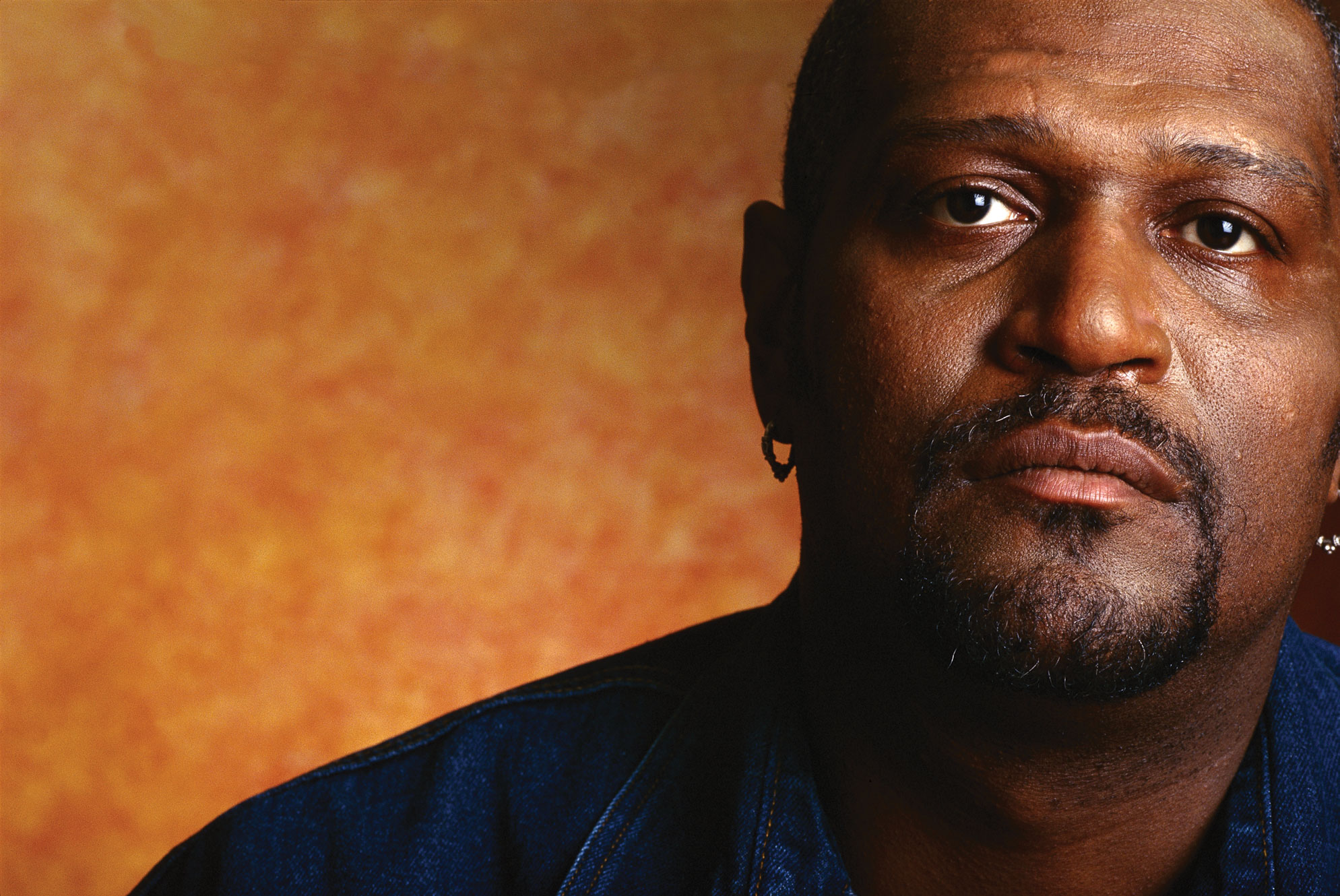
'I Just Stood Next To Him'
In Washington state, a white woman is in a doctor's waiting room when she notices a Russian-speaking immigrant being treated poorly by the receptionist at the front counter. The woman stands up and joins the man at the counter: "I just stood next to him and wouldn't leave until the receptionist finally helped him."
An African American man in the grocery store notices a cashier treating a non-English-speaking woman badly. After checking to see if the woman wants help, the man confronts the manager: "These people live in our community, this person spends money in your store, and your store has a responsibility to be part of this community."
A Colorado woman uses a wheelchair. She is boarding a plane with her husband when the flight attendant says, to the husband, "Will she need help being seated?"
It’s all too common: front-line employees who are ill-trained to deal with diverse clientele. Most of us don’t relish the thought of causing a scene, but interrupting biased customer service can send a clear message to the employees — and to other customers. When bias affects customer service, consider the following:
Speak for yourself. If you're the target of rude customer service, let the person know: "I deserve to be treated with respect in an establishment where I spend money." Or, "Please ask me, not my husband, what I need."
Make eye contact. Look at other people witnessing this exchange. Use body language to appeal for their assistance and support.
Step up. Don't allow someone to be mistreated when you have the power to help. Don't stick solely to "your" issues. Speak up against bigotry wherever it happens, whoever is involved. As the man in the grocery store said, "Your problem is my problem. We're in this together."
What Can I Do About Bigoted Corporate Policy?
'I Don't Want To Get In Trouble'
A Latino family stops at a fast-food restaurant where a Latina employee greets them at the counter. The husband orders, "Dos del numero uno y dos del numero cuatro, por favor."
The clerk responds, "Can you repeat that in English, please?"
The husband repeats the order in English, then adds, "But you speak Spanish; you have an accent just like mine."
The clerk looks over her shoulder and says, "Yes, I do, but I'm not supposed to speak Spanish here; I could get in trouble with my supervisor."
On the drive home, the man's 4-year-old daughter is crying.
They pull over to see what's wrong, and the little girl whispers in her mother's ear, in Spanish, "I don't know how to speak a lot of English, and I don't want to get in trouble."

When companies support or create policies that are exclusionary, customers (and employees) often feel marginalized. Because managers or corporate headquarters — not the company representative you’re talking to — often put such biased policies in place, it can be hard to know what to do, in the moment. Consider these steps:
Discuss, don't blame. Discuss the policy with front-line employees, asking for more information about what lies behind the policy. "What's the problem if we want to speak Spanish? We don't harm anyone. Do you know why they have this rule? What is behind it?"
Move up the ladder. Ask to speak to the on-site manager, then ask that person to explain the policy further and describe why it exists. Request contact information for the owner or corporate headquarters. Also ask what the formal complaint procedure is, then use it.
Get it in writing. Ask to see written store policy, either from the on-site manager or from the owner or corporate headquarters. Ask who ultimately determines the policy, then pursue changes through that person.
Appeal to the media. When companies are unresponsive to your inquiries, take the issue to your local paper or to the national press. Seek out journalists who write about race relations or community diversity. Explain what has happened, and provide documentation.
What Can I Do About A Stranger's Remarks?
'I Was Shocked'
A gay man in Oregon writes about walking down a street the day after a local Gay Pride event. On the sidewalk, he passes a man who tells a female companion, loudly, "There were fags all over the place. I felt like killing them."
A lesbian who at the time was dating a transgender woman shares a similar story of being called "dykes" by someone from across the street. A gay man tells of routinely being called "faggot" while walking down city streets.
A California woman is apartment-hunting with her mother. They are in a restaurant, making friendly conversation with people at another table. Her mother asks which neighborhoods are good for students. The man at the other table says, "Pretty much all of the neighborhoods in town are fine; we try to keep the niggers and Mexicans out of the city limits."
She says, "I was shocked and didn't know what to do. How do you confront a stranger in a restaurant? Or do you? I'll never forget the shock and anger I felt at that moment."

When people we don’t know dish out bigotry, it can leave us at a loss for words — and challenge our sense of safety. Try taking these steps:
Assess your surroundings. A heated exchange with a stranger can escalate into physical violence; assess the situation before you respond. Is the speaker with a group of people? Is the space deserted? Are you alone? Are children present? Consider such things before responding.
Say nothing. A questioning glance may be an effective and non-confrontational response in a situation in which you feel unsafe speaking directly. Keep moving.
Say something. If you choose to raise the issue, state your beliefs clearly: "I find that language very bigoted. It offends me." Or, "I think it's wrong to stereotype people."
Speak to the proprietor. If the incident happens in a business, leave. But before you walk out, let the managers know why you're leaving: "The man at the table next to mine kept using the N-word. It made me lose my appetite. Perhaps you should speak to him so you don't lose more business."
Report the incident to an advocacy group. Local advocacy groups, like gay and lesbian centers and local minority alliances, often keep check on the pulse of a community. Call them; let them know what you heard, when and where. They may see patterns you don't and can work with local government to address ongoing concerns.
What Can I Do About Retail Racism?
'I Thought Those Decades Were Gone'
An 18-year-old Hispanic woman goes to a Florida craft store to spend her birthday money. A manager follows her and asks repeatedly what she is looking for. Other customers, all white, are browsing without being asked such questions. When she protests, she is asked to leave. "I thought those decades were gone, when they could throw you out of a store just because you're Hispanic."
A white woman in Indiana notices store clerks shadowing two African American shoppers, taking items out of the shoppers' hands and replacing them on the racks, then standing by the dressing room door when one of the women tries on a garment.
A Latina woman is shopping in a major department store in Iowa. A young sales clerk follows her closely but doesn't speak to her. When she moves, he moves; when she stands still, he stands still. The woman considers confronting him but notices him returning to speak to his manager, an older man.
When you shop, you may get something besides the items you were looking for: retail racism, in the form of racial or ethnic profiling; teens and other young people also often are targeted. When store security or other personnel shadow your every move, or when you see them tailing another customer, interrupt the behavior. Try this:
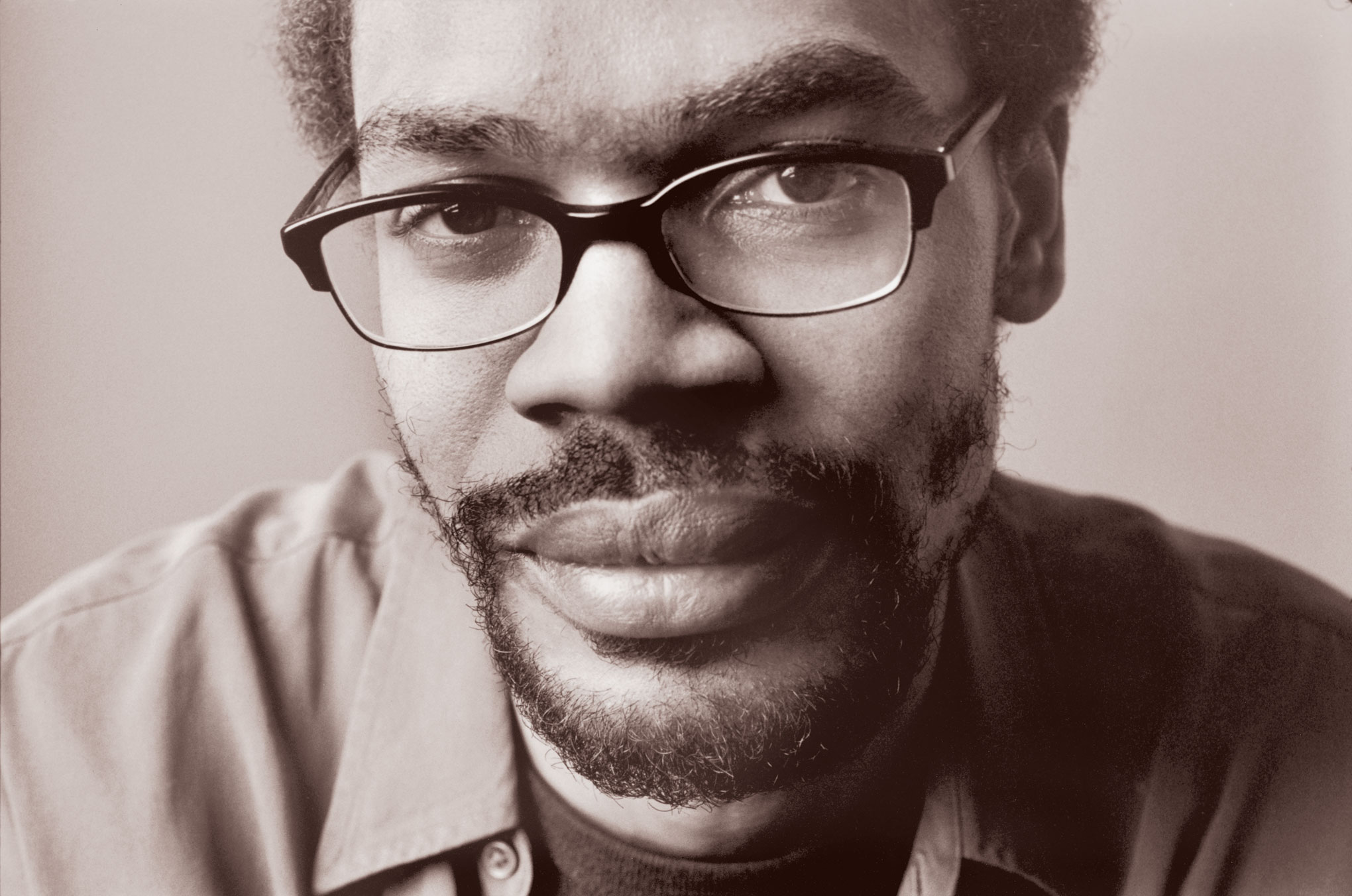
Find the source. The clerk may simply be following store policy. Ask why the clerk or security officer is following you (or someone else). Ask to see the written policies on discrimination. Share your experience and observations with company officials.
Stage a personal public protest. Go to the customer service desk or check-out counter. Cancel your store credit card on the spot, and say why you're doing so — loud enough for others to hear. Ask for the manager and tell that person the store has lost your business.
Tell others. Let friends and family know what you observed or experienced. Encourage them to refrain from shopping at a store that practices racial profiling or to contact the store to ask about such policies and practices.
What Can I Do About Racial Profiling?
'Driving While Black'
An African American government employee is stopped four times in a single month while driving home. One of the stops involves at least four police cars. His "infraction"? An alleged illegal lane change. He asks, "Would a white man in my same position accept this as normal? Why should I have to accept it as normal?"
An African American night security guard, the frequent target of such traffic stops, says, "I live a simple life. I go to work, and I come home. I don't drink or do drugs or sell drugs. I don't like being harassed. I didn't do anything wrong. What really is the problem? This is happening for no other reason than the color of my skin."
An African American minister is pulled over while driving home from Sunday service, in full view of many of his parishioners. He is forced to complete a field sobriety test. When he asks why he has been pulled over, he is told simply, "You swerved."
It’s so common it has a well-known nickname: driving while black. But, that term is too limiting: Latinos, Arab Americans and others also shared similar stories, tales of racial and ethnic profiling tied to overzealous traffic stops for relatively minor “infractions.”
Confront the bias, later. Police officers hold a lot of power, and arguing with them in the moment generally won't serve you well. While anger and frustration are normal and reasonable responses to racial profiling, strive for calmness.
Inquire and document. Ask why you've been stopped. Ask for the officer's badge number. Note the identification numbers on the police car. Write down every detail you can immediately after the incident.
Lodge a formal complaint. Each time an unnecessary stop occurs, use official procedures to file a grievance. Community relations divisions inside police departments often are the best place to start.
Create an alliance. Reach out to friends and family who also experience racial profiling. Ask them to commit to filing complaints at each offense, too. Keep records of everyone's experiences. Also seek help from supportive community groups.
Raise awareness. Contact the media and ask for coverage of the issue. Provide names and contact information of people willing to talk about their experiences.
What Can I Do About My Own Bias?
'I Found Myself Making Choices'

A woman is in a crowded movie theater. Unable to find enough side-by-side seats for her entire group, she finds herself looking for a seat alone:
"I found myself making choices of rejecting a seat based on who might be on either side of me — choices made about skin color, ethnicity, age, gender and so on. At some point, I realized what I was doing and made a conscious decision to choose my seat based on its distance from and orientation to the screen rather than on who I might be sitting next to."
As you watch for moments of everyday bigotry, don’t overlook yourself. Try these steps:
Be self-critical. Save someone else the trouble of confronting you. Pay attention to your everyday actions; be conscious of how bias is affecting what you do — and what you don't do.
Change your behavior. When you catch yourself in a biased action, change course immediately, and learn the lesson for good.
Share your experiences. Be open with others about biased behavior. Let others hear what you've learned.
Six Steps to Speaking Up Against Everyday Bigotry
Whatever situation you’re in, remember these six steps to help you speak up against everyday bigotry. In any situation, however, assess your safety, both physical and emotional. There is a risk, and that must be acknowledged as you make your own choice to Speak Up!

Be Ready.
You know another moment like this will happen, so prepare yourself for it. Think of yourself as the one who will speak up. Promise yourself not to remain silent.
"Summon your courage, whatever it takes to get that courage, wherever that source of courage is for you," said Dr. Marsha Houston, chair of the Communication Studies Department at the University of Alabama.
To bolster that courage, have something to say in mind before an incident happens. Open-ended questions often are a good response. "Why do you say that?" "How did you develop that belief?"

Identify the Behavior.
Sometimes, pointing out the behavior candidly helps someone hear what they're really saying: "Janice, what I hear you saying is that all Mexicans are lazy" (or whatever the slur happens to be). Or, "Janice, you're classifying an entire ethnicity in a derogatory way. Is that what I hear you saying?"
When identifying behavior, however, avoid labeling, name-calling or the use of loaded terms. Describe the behavior; don't label the person.
"If your goal is to communicate, loaded terms get you nowhere," said Dr. K.E. Supriya, associate professor of communications at the University of Wisconsin, Milwaukee, and an expert in the role of gender and cultural identity in communication. "If you simply call someone a racist, a wall goes up."
Appeal to Principles.
If the speaker is someone you have a relationship with — a sister, friend or co-worker, for example — call on their higher principles: "Bob, I've always thought of you as a fair-minded person, so it shocks me when I hear you say something that sounds so bigoted."
"Appeal to their better instincts," Houston said. "Remember that people are complex. What they say in one moment is not necessarily an indication of everything they think."
Set Limits.
You cannot control another person, but you can say, "Don't tell racist jokes in my presence anymore. If you do, I will leave." Or, "My workspace is not a place I allow bigoted remarks to be made. I can't control what you say outside of this space, but here I ask that you respect my wishes." Then follow through.
"The point is to draw a line, to say, 'I don't want you to use that language when I'm around,'" Bob Carolla, spokesman for the National Alliance for the Mentally Ill. "Even if attitudes don't change, by shutting off bad behavior, you are limiting its contagion. Fewer people hear it or experience it."
Find an Ally/Be an Ally.
When frustrated in your own campaign against everyday bigotry, seek out like-minded people and ask them to support you in whatever ways they can.
And don't forget to return the favor: If you aren't the first voice to speak up against everyday bigotry, be the next voice.
"Always speak up, and never be silenced out of fear," said Shane Windmeyer, founder and coordinator of Campus PrideNet and the Lambda 10 Project. "To be an ally, we must lead by example and inspire others to do the same."
Be Vigilant.
Remember: Change happens slowly. People make small steps, typically, not large ones. Stay prepared, and keep speaking up. Don't risk silence.
"There's a sense of personal disappointment in having not said something when you felt you should have," said Ron Schlittler, acting executive director of the national office of Parents, Families and Friends of Lesbians and Gays.
Carolla put it this way: "If you don't speak up, you're surrendering part of yourself. You're letting bigotry win."